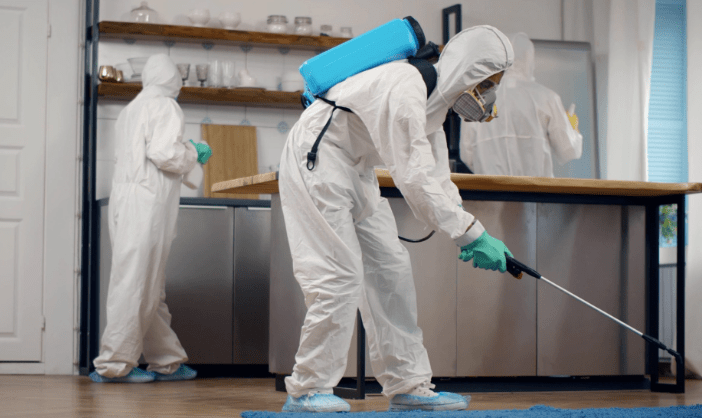Urban areas are bustling with life, but this also means they’re a magnet for pests. These pests—which can cause significant health concerns and property damage—range from insects and birds to rats. Effective pest control in Citrus County and other urban areas is essential to maintain a healthy and safe living environment.
Citrus County faces various pest challenges, including invasive species that threaten local agriculture. Effective pest control strategies often involve a combination of integrated pest management techniques and community education. Ultimately, addressing these issues helps protect both crops and the local ecosystem.
Residents in urban settings often find themselves battling a variety of pests. The diverse ecosystem in cities provides ample opportunity for these unwelcome guests to thrive. Thus, understanding effective strategies for pest control is crucial for ensuring that your home and environment remain safe and comfortable.

Understanding Common Urban Pests
Common urban pests include rodents such as rats and mice, insects like cockroaches, ants, and termites, and birds such as pigeons. Each pest has its own set of behaviors and preferred environments. For instance, cockroaches thrive in dark, damp locations, while rodents are attracted to areas with ample food and nesting materials. Pigeons often seek out rooftops and ledges for nesting.
Understanding these behaviors is key to implementing effective control measures. For example, cockroaches are known to come out at night and seek out food particles left on countertops or floors. However, rodents are skilled climbers and may get through even the smallest gaps to enter your house. According to Pest World, understanding these pest habits can help homeowners and businesses implement more effective control strategies.
Preventative Measures for Pest Control
Preventative measures are the first line of defense against pest infestations. You can drastically lower the likelihood of pests moving into your living areas by putting these methods into practice.
- Sealing Entry Points: Close off cracks and crevices in walls, floors, and foundations. If you want to reduce gaps, weather strip windows and doors.
- Regular Cleaning: Keep living spaces clean to remove food and water sources that attract pests. Regularly clean under and behind appliances, where food debris can accumulate.
- Proper Waste Management: Dispose of garbage promptly and maintain clean trash areas. Use tightly sealed trash bins to prevent pests from getting inside.
- Regular Inspections: Routine checks can help identify early signs of infestations. Pay close attention to basements, attics, and storage areas where pests might hide.
These preventative measures not only keep pests at bay but also contribute to overall household hygiene and safety. A well-kept and hygienic home has a lower initial pest population.
Safe and Effective Pest Control Methods
When preventative measures are not enough, additional pest control methods may be necessary. There are multiple approaches to consider, ranging from chemical solutions to natural and non-toxic methods.
Chemical methods include the use of insecticides and rodenticides. While these can be highly effective, they should be used with caution to avoid harm to humans, pets, and the environment. Non-chemical methods, such as traps and bait stations, are also effective and can be used in combination with chemical treatments for a more comprehensive approach.
There is a growing trend towards integrated pest management (IPM). IPM focuses on long-term prevention and minimal pesticide use. This method of managing pests reduces threats to the environment, economy, and public health by utilizing a combination of biological, cultural, physical, and chemical methods. For example, IPM might include introducing natural predators to control pest populations or using pheromone traps to disrupt pest mating cycles.
By using a balanced approach that incorporates multiple methods, homeowners can achieve effective pest control while minimizing potential negative impacts on their surroundings.
Importance of Regular Maintenance and Professional Services
While DIY methods can be effective, regular maintenance and professional services ensure comprehensive pest control. Experts offer several advantages, including the identification of potential issues before they escalate into major problems.
Professional pest control services provide customized solutions tailored to the specific needs and characteristics of your property. They use advanced tools and techniques that are not typically available to the average homeowner. Regularly scheduled services can address seasonal pest problems and provide continuous protection throughout the year.
In addition, professional services offer peace of mind, knowing that your home or business is protected by trained and experienced technicians. You can focus on other aspects of your life or work, confident that pest control is being managed effectively.
Regular maintenance, combined with professional expertise, is key to achieving long-term success in pest control. By staying proactive and engaged, you can minimize the risks and disruptions caused by pests in your urban environment.
Conclusion
Effective pest control in urban areas requires a combination of understanding pest behaviors, implementing preventative measures, and using safe, effective control methods. Regular maintenance and professional services play a crucial role in ensuring long-term success. By staying vigilant and proactive, urban dwellers can maintain a pest-free environment and safeguard their health and property.
Hey welcome to my blog . I am a modern women who love to share any tips on lifestyle, health, travel. Hope you join me in this journey!

Speak Your Mind